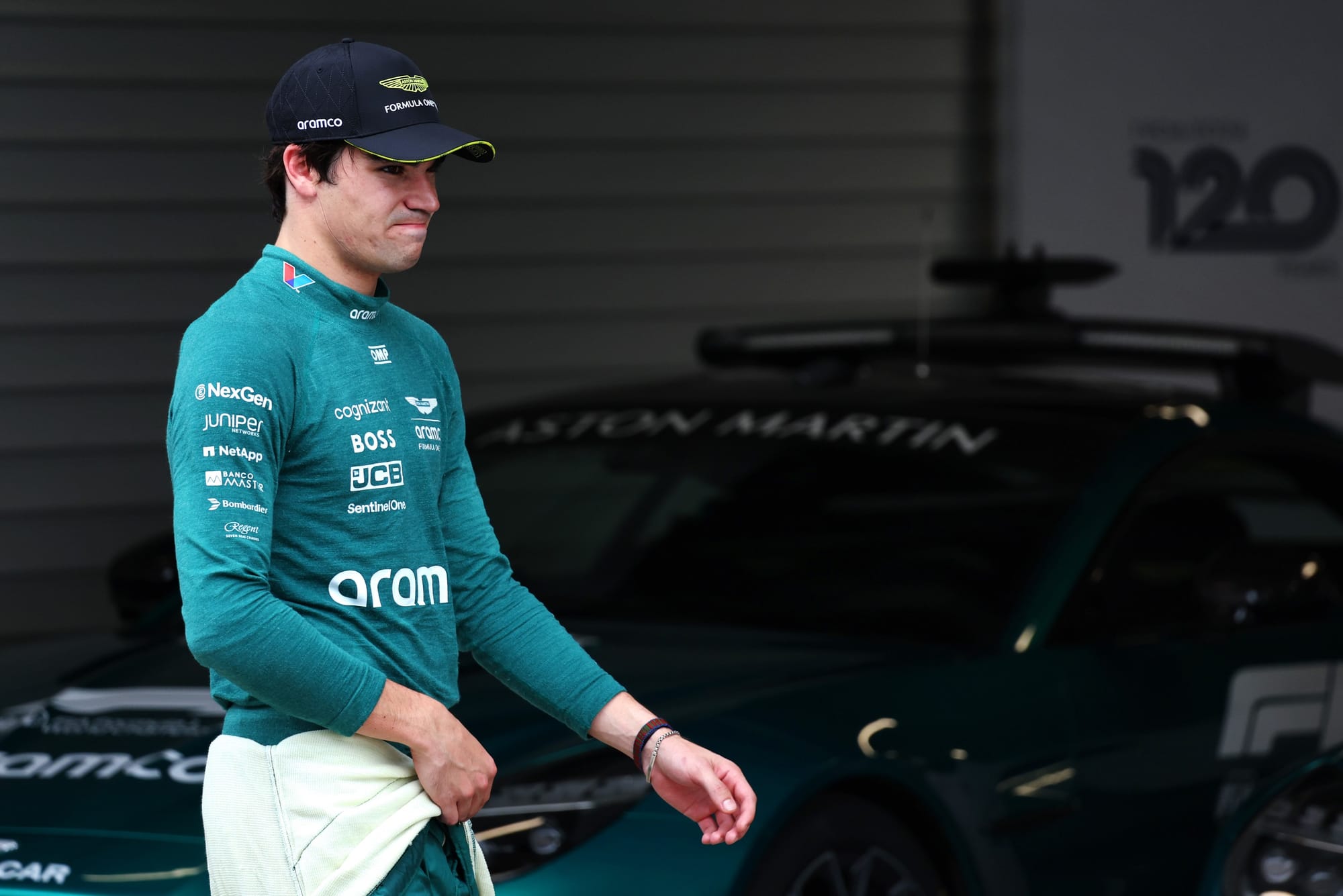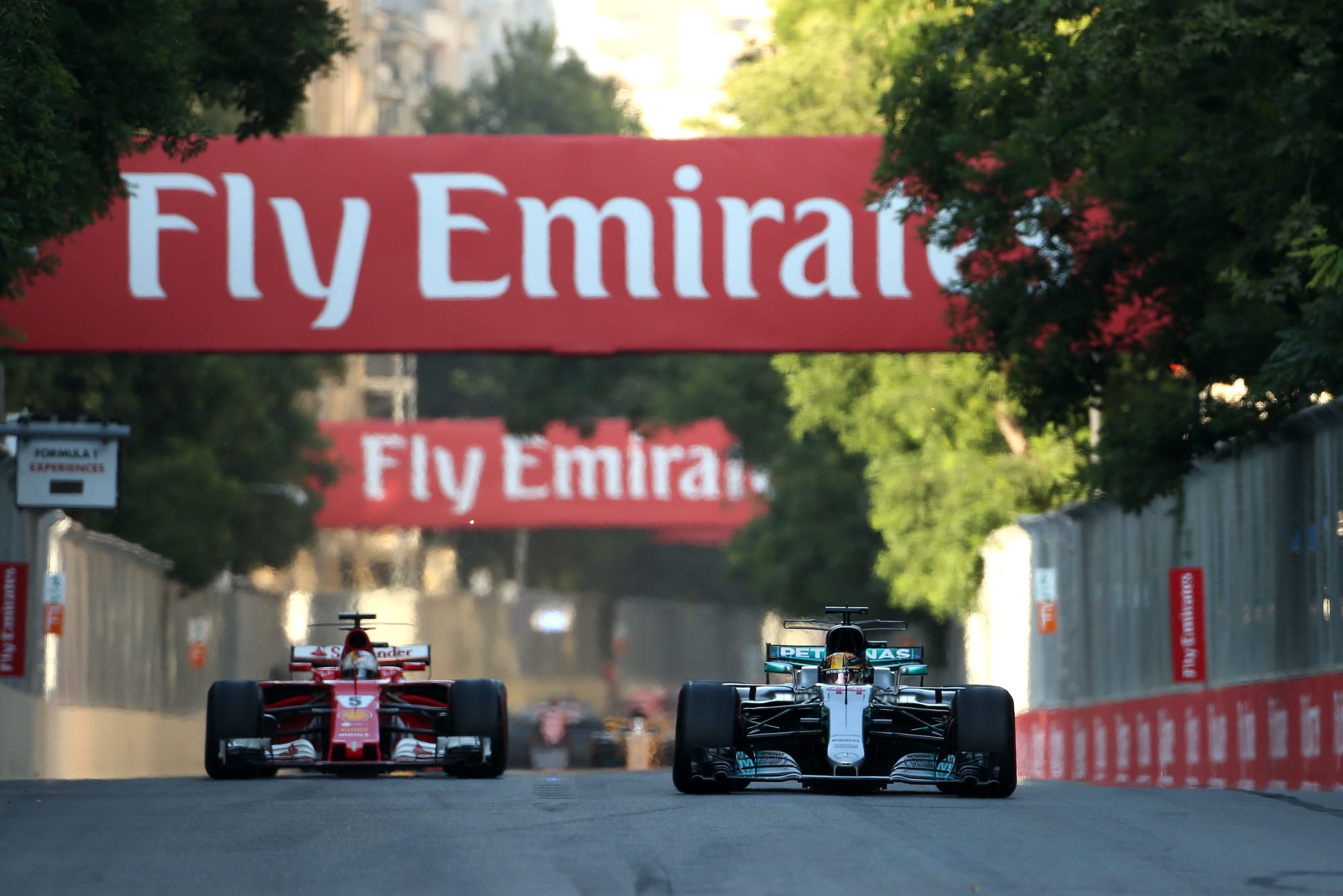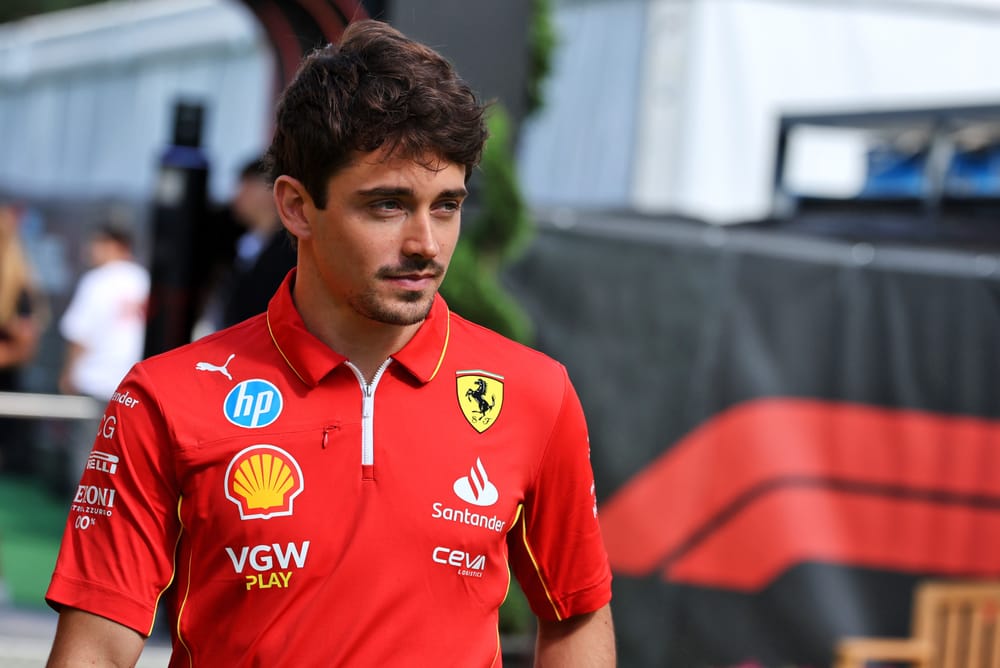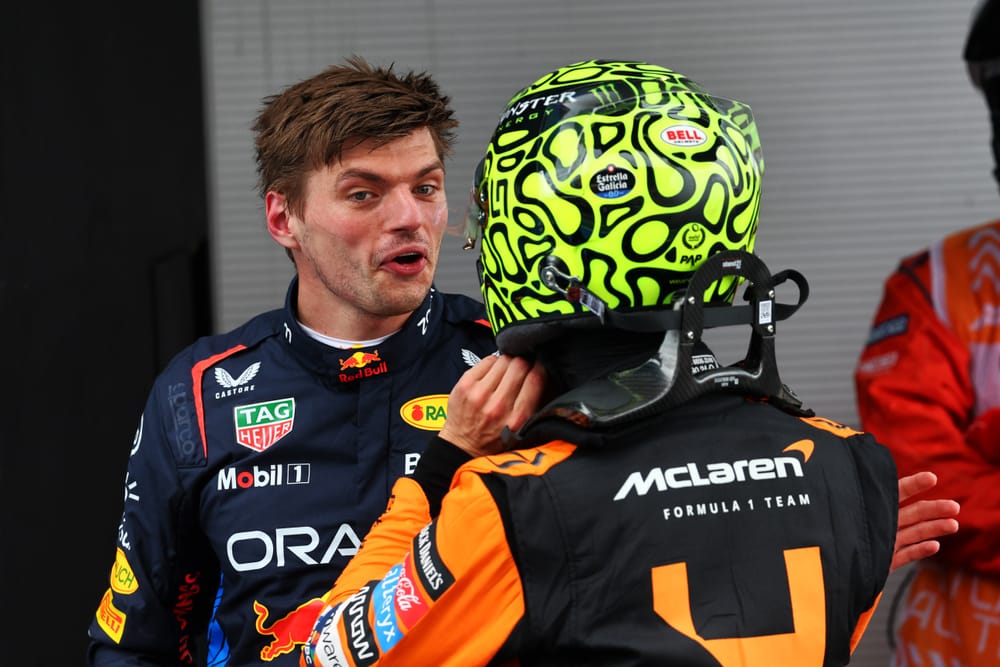Up Next

Charles Leclerc and Lance Stroll were deeply fortunate to have taken part in Spanish Grand Prix qualifying unpenalised after their antics in final practice.
Leclerc was irked by Norris getting in his way at the end of FP3 at Turn 5 and then moved towards the McLaren driver, making minor contact in what appeared to be an act of retaliation just before Turn 7.
Leclerc offered a single expletive to his engineer while Norris reported damage and said "he [Leclerc] just drove into me".
The big talking point from FP3 👀#F1 #SpanishGP pic.twitter.com/9R08DJor4K
— Formula 1 (@F1) June 22, 2024
It followed a bizarrely similar occurrence between Stroll and Lewis Hamilton that had happened just a couple of corners before at Turn 5, with Stroll making contact with the Mercedes driver.
A little bit close for comfort between Lance and Lewis 😳#F1 #SpanishGP pic.twitter.com/LkjTVHV8gt
— Formula 1 (@F1) June 22, 2024
Both incidents were investigated under Article 33.4 of the sporting regulations, which states: "At no time may a car be driven unnecessarily slowly, erratically or in a manner which could be deemed potentially dangerous to other drivers or any other person". That's the same rule that Fernando Alonso was penalised under for his contribution to George Russell's Australian GP crash.
Both Leclerc and Stroll's manoeuvres were deemed to be "erratic" but not dangerous. A driving reprimand was thus applied to both Leclerc and Stroll based on unspecified "precedents".
It was the first reprimand of 2024 for both drivers (they're allowed four reprimands in a season before they get a grid penalty) so Leclerc and Stroll were able to take part in qualifying as normal - a very lucky escape for both.

The key difference between the stewards' reports on both incidents was that while Stroll admitted "he wanted to express his displeasure to the other driver by pulling over on him at the exit", Leclerc blamed ill-judged car positioning. "[Leclerc] contender that, while trying to get off the racing line before Turn 7, he misjudged the position of his car and made slight contact with [Norris]," the stewards wrote.
Leclerc gave a similar explanation to media after qualifying: "The version is very simple. Lando exited the pitlane, I was behind on a push lap, then when he aborted, I also aborted, I braked to be alongside him and I misjudged. I was on the right, I didn't want to impede either the cars behind, so I was a bit in the middle by being frustrated and looking in the mirrors and trying not to impede, and we collided. But it was more misunderstanding more than anything."
It takes a generous bit of belief to agree with Leclerc's interpretation that he was simply moving off the racing line rather than making a deliberate move, especially given how irate he appeared in the cockpit in the aftermath of the incident. Leclerc insisted "it was never my goal" given the risk of damaging his car right before qualifying. And while that's a perfectly logical take when you're out of the car, we've seen plenty of examples of drivers not thinking about the integrity of their cars when they're behind the wheel and the adrenaline is pumping.
You have to at least credit Stroll for admitting his intent, as with Leclerc it was quite clear what the purpose of the "erratic" move was.
Bizarrely, the stewards prefixed saying Leclerc's move was erratic but not dangerous with "irrespective of any possible intent", which seems to indicate evidence of intent won't have changed the punishment. And that's wrong.
There should be a difference between a driver making an erratic ill-judged move that's an unforced error and a driver making an erratic move that's premeditated, i.e. the purpose of the move is making contact with, or at the very least intimidating, another driver.
Intent is difficult to prove but, as with any stewards' decision, they simply have to make the best judgement call based on the evidence available to them and that all pointed to Leclerc making a deliberate move.
The kind of deliberate move that should warrant a proper penalty, whether that be a grid penalty or even the threat of disqualification from qualifying.
You can't use your car as a weapon to make your point. Even if it's at a comparatively low speed, it's reckless and dangerous to all those involved. It's exactly why the stewards came down so hard on Sebastian Vettel with a stop-and-go penalty for deliberately tapping Hamilton's Mercedes behind the safety car at the 2017 Azerbaijan Grand Prix - surely one of the most worthwhile precedents, even if that was in a race seven years ago.

It also sets a worrying example for every driver on the motorsport ladder. The lack of punishment is telling young drivers from karting to Formula 2 that, as long as it's a minor move at low-speed during practice, they can now go and get their justice on track by tapping another car - as long as they can create enough reasonable doubt about what they intended to do. Harsher action here could have been a great response to the strange amount of leniency shown for a deliberate clash in Formula 3 earlier this year.
Neither Leclerc nor Stroll are dangerous drivers. Leclerc has zero penalty points and is often a shining example of a clean racer but that previous clean record shouldn't prevent this one moment of recklessness from having proper consequences.
A reprimand can also be given for all manner of minor infringements. Using your car to act out against another driver is not comparable to minor impeding infringements in practice. And doing so should be deemed "dangerous".
If it isn't deemed "dangerous" as per the rules, then the rules are not fit for purpose.
After all, it's down to the stewards to deliver justice, never the driver and it's been thoroughly the wrong way around at the Spanish GP.




